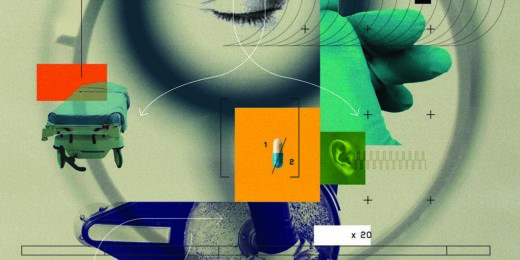Cases of patients who recovered from trauma after dreaming under surgical anesthesia spur Stanford Medicine researchers to investigate dreaming as therapy.
Category: Anesthesiology & Pain Management
Bringing addiction treatment ‘inside the house of medicine’
Addiction expert Keith Humphreys discusses how to change the opioid narrative and treat the condition like a chronic disease.
Migraine headaches: What are they and how do you treat them?
Stanford Medicine headache fellow Sheena Pillai explains what doctors know about migraine attacks and describes treatment options.
How hypnosis can alter the brain’s perception of pain
Stanford Medicine physician David Spiegel, MD, explains how hypnosis can be effective against pain and why some people are more hypnotizable.
Heartbeats and Hiccups: Cesar Padilla and Reena Thomas
In the Heartbeats and Hiccups video series we explore passions and pivots through a conversation on the defining moments of our careers.
New approach effectively relieves chronic low back pain
Stanford Medicine researchers have developed a type of cognition-based therapy that helps address chronic low back pain.
Post-epidural headaches can be more serious than previously known
Stanford research shows headaches caused by epidural complications during childbirth can be more serious and chronic than previously thought.
Taking the stigma out of talking about pelvic pain
Two Stanford gynecologists talk about pelvic and sexual pain, and why it's so important to empower patients to address it.
Closing racial gaps in medical residencies could take decades
A new study shows that increasing Black and Latino representation in medical residencies to match U.S. population representation could take decades.
Stanford physician-programmer creates Coders Against COVID
A Stanford anesthesiologist co-founded a volunteer organization that maps COVID-19 testing locations and displays updated data about the pandemic.
Stanford undergrads design motivator for at-home physical therapy
For a Stanford digital health biodesign course, two undergraduates developed a program to increase patients' physical therapy engagement at home.
Black medical workers write, reflect on racism
On the radio show "Forum," Black medical workers spoke about the new awareness of racism, and how writing helps them process their emotions.
Ice pack or heating pad? What works best for athletic injuries
Sports medicine expert Calvin Hwang weighs in on when you should use cold or heat for athletic injuries, such as sprains and strains.
Palliative care training project helps improve, expand services in India
A Stanford-led palliative-care training program is helping critically and chronically ill patients in India get services they need.
Identification of “missing microbe” spurs clinical trial in ulcerative colitis
A study links ulcerative colitis to the depletion of important acids ordinarily produced by a set of gut microbes mysteriously missing in action.
More prep before surgery, less pain after
Stanford physicians have developed ways to better prepare patients physically and mentally for surgery, helping them to feel less pain during recovery.

















